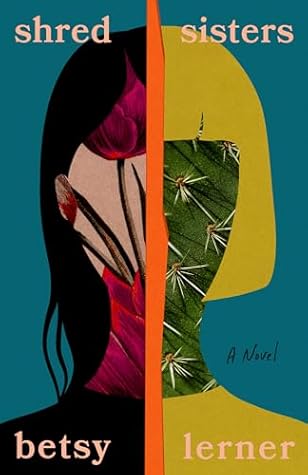More on this book
Community
Kindle Notes & Highlights
At three, Ollie already knew how to exert her power, and my parents, beguiled by their little girl, acquiesced. “Strong-willed,” “headstrong,” and “stubborn” didn’t attach themselves to Olivia until later.
“Don’t hold on to things that require a tight grip.”
“Happiness is attainable, sadness is inevitable.”
Though Ben wasn’t “boyfriend material” according to my mom, we’d all noticed that he had a calming effect on Ollie. She shed her layers of defiance and anger around him; sometimes she was even sweet.
“How did you get to be so good?” It was a compliment that felt like an accusation.
If challenged, Ollie had two settings: rage and apathy.
It was classic Ollie; she had a gift for making you feel guilty for something she had done.
Her intolerance wasn’t about impatience; her mind just ran faster and more furiously than mine.
The curtains had parted, and our family was yet again in the middle of a play we hoped no one else could see.
Ollie’s absence was more suffocating than her presence.
family systems therapy. He believed that what happened to Ollie happened to all of us. If we wanted her to get better, we also had to examine ourselves.
Dr. Simon believed that all comments and gestures were important, especially jokes. He said people used humor to deflect pain.
A massive body of neurological research had been done on the “fight or flight response” but I’d become obsessed with the lesser reaction known as “freeze” or “reactive immobility.”
“Never making love is returning a present unopened.”
“Parents are fucked-up people,” Marc said. “You have to get over it.”
“It’s not personal,” I said, understanding well how cruel Ollie’s actions could feel, how heartless. “It’s hard to separate the person from the illness.”
“She’s manic most of the time except when she isn’t.”
Worse, I wasn’t able to quell the occasional fear that if she did return, Ollie would drag me down into the muck and ruin everything.
pawed through a pile of clothes she’d amassed and took a few choice items, including a satin cadet’s jacket she’d found in a dumpster near the Dakota.
She left the rest behind, mostly things she had found on the street or possibly shoplifted.
if people spent less time working on themselves and more time doing their jobs, the world would be a better place.
In the months and years after she died, I often saw the world through her eyes, as if I had inherited her mantle of judgment, her scoreboard in the sky. Those were the times I missed her most. Before long, the solemn gathering
Mom had chosen the unexamined life and stuck with it to her dying day.
As soon as the long fingers of an active ingredient reached Ollie’s brain circuitry, she rejected it. When none worked, Dr. Simon labeled her “treatment resistant.” His diagnosis: Borderline personality disorder.
She shouldn’t trust herself! I had no idea what to tell her. She had left a trail of hurt, all in service of her restless, fevered, formidable mind. Live free, or what?—Live like the rest of us, live like me? For Ollie there seemed to be an unlimited cup of possibility, a bank of brilliant clouds against a perfect blue sky, a taut ribbon flickering in the distance. As Dad always said when Ollie crossed the finish line, “Your sister is a winner.”
My sister swims beyond the ocean crest, part-dolphin, part-girl. Gulls circle and fill the air. A cloud asks, what do you know? No one will love you more or hurt you more than a sister.
Our failed marriages became badges of honor: we were soldiers on the battlefield of love, burned, battered, but still here, or so we said. There was one last bite of cake on the plate.


